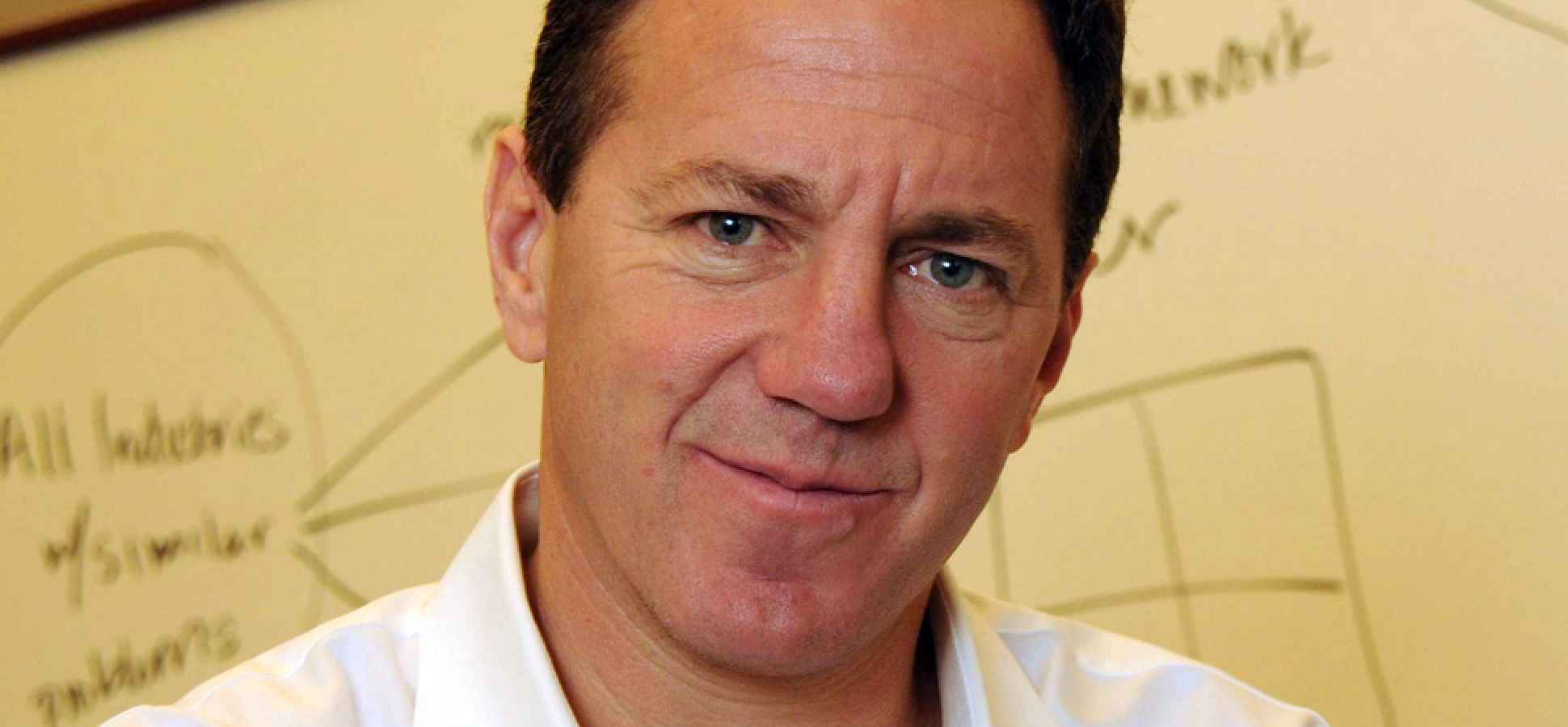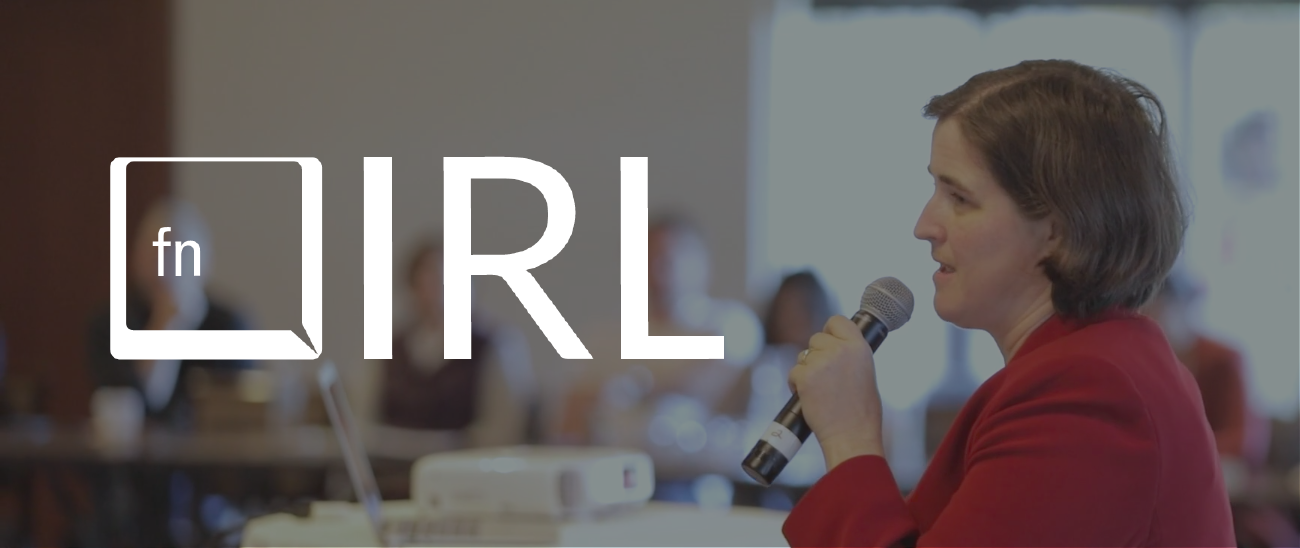
If your company is perfect, John Katzman wants to hear all about it. “Everybody has warts, everybody farts, every one of your competitors has a CEO that’s tearing his or her hair out too”, said the 3-time serial entrepreneur when asked what risks he sees for his companies moving forward. Having scaled the Princeton Review, 2U, and the Noodle Companies to a combined value of $3.5 billion, the edtech disruptor isn’t afraid to admit he’s made mistakes along the way, and takes a certain sense of pride in learning from them. In his honest, humble, and informative interview with us, the NYC-based founder discussed:
- Why there is nothing that shapes a product better than going out and discussing it with your clients.
- The two mistakes founders make when fundraising.
- How being an entrepreneur is a balancing act between utter optimism and brutal honesty.
Q: Let’s start at the beginning with your MVP. Can you share any anecdotes about how that process went for you?
John: For Princeton Review, it was a course of 15 students I taught in New York. For 2U, it was v1 of our social LMS and a good marketing campaign. At least two of the four Noodle Companies probably spent too much time and money getting to market, a victim of my earlier successes.
At the Princeton Review and 2U we spent very little time building the perfect product or service pre-launch. As I got more confident in my understanding of the market, I was willing to spend more money building what I wanted to build, versus a leaner approach. Turns out I was wrong.
Q: You’ve never had a true co-founder. Do you have any advice for solo-founders about navigating the startup journey without a co-founder?
John: I like having clear authority to make decisions. But I have always managed to hook up with incredible people, and I’ve always given them generous option packages.
It is NOT a good idea to be the one senior person in a company of newbies. As a solo-founder, surround yourself with smart people. There’s nothing wrong with overpaying someone with more experience than the average person has in that position. There’s nothing wrong with having a team that’s too experienced. People often make the opposite mistake— they take in a bunch of kids who are straight from school–smart, but clueless–and assume someone will know what they’re doing.
It is NOT a good idea to be the one senior person in a company of newbies. @johnkatzman
@Noodle_Partners
@2Uinc@ThePrincetonRev
Q: You’ve generally been the sales lead at your companies. Do you have any advice for founders about building our their sales team and strategy?
John: There is nothing that helps you shape a product better than going out and discussing it with your clients. If you have a prototype and you speak to enough potential clients, you’re going to get incredible feedback. If you’re just asking them freeform what they’d like to see, you’re going to get crap feedback. And you have to be careful, because generally the people who will take your meeting are your friends, and your friends like you.
In addition, the CEO needs to be out there selling aggressively because:
- If you’re not out there, you’ll better understand the clients and what they need from your product. Hearing that stuff secondhand from your sales guys just doesn’t work. The way to bathe yourself in the emotion and intellectual needs of your product is to get the hell out of your office.
- Sales guys really appreciate a CEO who is out there with them. And when they need access to a more senior person on the other side, they’re able to bring their CEO in.
If you have a prototype and you speak to enough potential clients, you’re going to get incredible feedback @johnkatzman
@Noodle_Partners@2Uinc@ThePrincetonRev
Q: You have scaled 3 companies to a total of $3.5B value. Can you walk us through your financing process?
John: I bootstrapped Princeton Review. This was 30+ years ago when there wasn’t a VC community of note, especially in education; at some point, I raised PE and then took it public. For 2U (which I started in the middle of the 2008 crash), I hired a banker to help with Series A, and ended up raising $100mm before the company went public. For the Noodle Companies, I brought in a good CFO.
Q: What mistakes do you see Founders make when raising funds?
John: I’ve certainly seen a whole lot of pitches, and invested in several dozen edtech startups, so I’ve been on both sides of the deck. Generally, I see two problems:
First is that a lot of CEOs are locked into a solution, as opposed to finding a problem and solving it. Right now, all over EdTech, there are people trying to plug in blockchain, and I’m sure somebody will come up with a really good solution to an important problem by using blockchain, but what I’ve seen is a lot of dumbass solutions to non problems from people who don’t understand either blockchain or education.
Another mistake founders make while pitching is overestimating TAM: there’s always a slide about TAM, and that slide is almost always bullshit. A thoughtful, honest, conservative estimate of TAM is something that grabs my attention.
There are some best practices in fundraising, and they’re generally around the process:
- Picking investors: You carefully pick a target list, let’s say 30 VCs who are early in their fund, when they’re employing capital against startups. Each likes your industry, and is not invested in competitive companies.
- Get on the road: Once you’ve found those 30 targets, you track them down with an exec summary, and set aside a month to visit them. If you use your time efficiently, you can do this and still run your company, but that month includes a lot of first presentations.
- Iterate on your pitch: The tough part of the pitch is the Q&A. Everytime you hit a question you can’t answer well in two sentences, you add it to your list and work on a quick, tight answer for when it comes up again. And good questions may take some real thinking, so take your time and really think about the VC’s concern: maybe it’s a communication problem, or maybe you have an actual vulnerability.
- Compare offers: As your pursue the process with the interested VCs, steer them towards a simple NVCA term sheet and a certain date; you want the offers to be similar in structure and to come in together so you can compare them.
Your well constructed process signals you’re disciplined, strategic, and collaborative; all good.
One more note: inexperienced founders look for the highest valuation, and often they end up with deals that have weird preferences in them. More experienced entrepreneurs want a contract that’s simple and that won’t make the next round impossible; they don’t care about someone making them feel good with a big number. Further, the VC with the highest valuation may be the dumb VC, and now you’ve got an idiot on your Board. Simply going with the best valuation is a rookie error.
Simply going with the best valuation is a rookie error.
@johnkatzman@Noodle_Partners@2Uinc@ThePrincetonRev
Q: What is one thing you wish you knew at the beginning of your journey as a founder that you know now?
John: I knew that the key was hiring great people and letting them do their jobs. And I’ve always known that tech enabled me to lever those people. But I’ve learned to marry a metrics -driven approach with a culture that’s welcoming and informal.
There’s a discipline to thinking through which things you measure, and forcing yourself to look at those measurements. The metrics that make sense right now might not make sense in six months; good metrics can turn into vanity metrics as you and your team focus on them. So getting in the room and having a conversation about the metrics is so important. Further, the critical goals change as you progress. We were focused on the number of schools we were working with, and now it’s more about the platform and the projected enrollment. It’s like slalom–you focus everyone on one problem that needs solving, and as you get close to solving it, you start to move onto the next problem. That doesn’t mean a previous metric won’t come back and bite you in the ass, of course. Every so often, you have to look over your shoulder to make sure a problem doesn’t get unsolved.
That said, it’s important that the company is a place people want to be. Your people understand and buy into the mission— because that’s what’s going to keep them going at 2 in the morning. And even if you’re out selling, you need to come back and lead the conversations that need to happen over caffeine, and the ones that are better had over alcohol. Creating a culture where people can have both conversations is every bit as important as the strategy or metrics.
Because who wants to work somewhere that they don’t like anybody, and where you don’t care about the problem you’re solving? One of the reasons to start a company is to be create a culture that’s enthusiastic, open-minded, fun, and interesting. Because startups are hard and they generally pay less. People are driven by mission. Everybody works harder when they give a shit about why they’re doing it.
Marry a metrics -driven approach with a culture
that’s welcoming and informal.
@johnkatzman@Noodle_Partners@2Uinc@ThePrincetonRev
What’s next for you? What risks do you see moving forward?
John: I believe each of the four Noodle companies could achieve significant scale and value, and remake a dysfunctional education market. At this point, it’s about relentless execution.
In terms of risk, it was a mistake to start four companies more or less at the same time. It took me awhile to find the people around me for each company that could execute, but I feel great about our folks, and we’re down to a couple positions that we still need to fill.
The people are so important because an idea does not carry a company, execution carries a company. Good processes don’t just happen. I look at my first years building Noodle as a cautionary tale for what happens when you get unfocused. It took too long to cut where we needed to cut and focus where we needed to focus.
A few folks have noted that being an entrepreneur is balancing brutal honesty with utter optimism. You have to believe you’re going to win, but you have to be aware of the problems— it’s easy to look away from unpleasant facts and stay optimistic, and it’s easy to look at what’s wrong and get depressed, but you can’t do either. Everybody else has warts too, everybody farts, every one of your competitors has a CEO that’s tearing his or her hair out too. If your business is perfect I’d like to hear all about it.
Every one of your competitors has a CEO that’s pulling their hair out too. If your business is perfect I’d like to hear all about it. @johnkatzman
@Noodle_Partners@2Uinc@ThePrincetonRev






